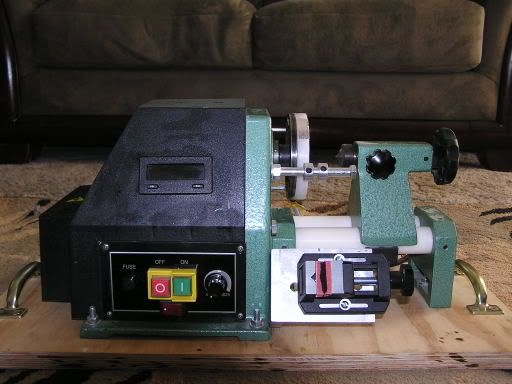Here's one I made from a Grizzley lathe. I just looked and they don't sell this one any more. I think I paid $40 for it. The counter came from ebay and the delrin came from the scrap bin at the local plastic company. I've since taken the tail stock off. It works just fine without it.


Comment